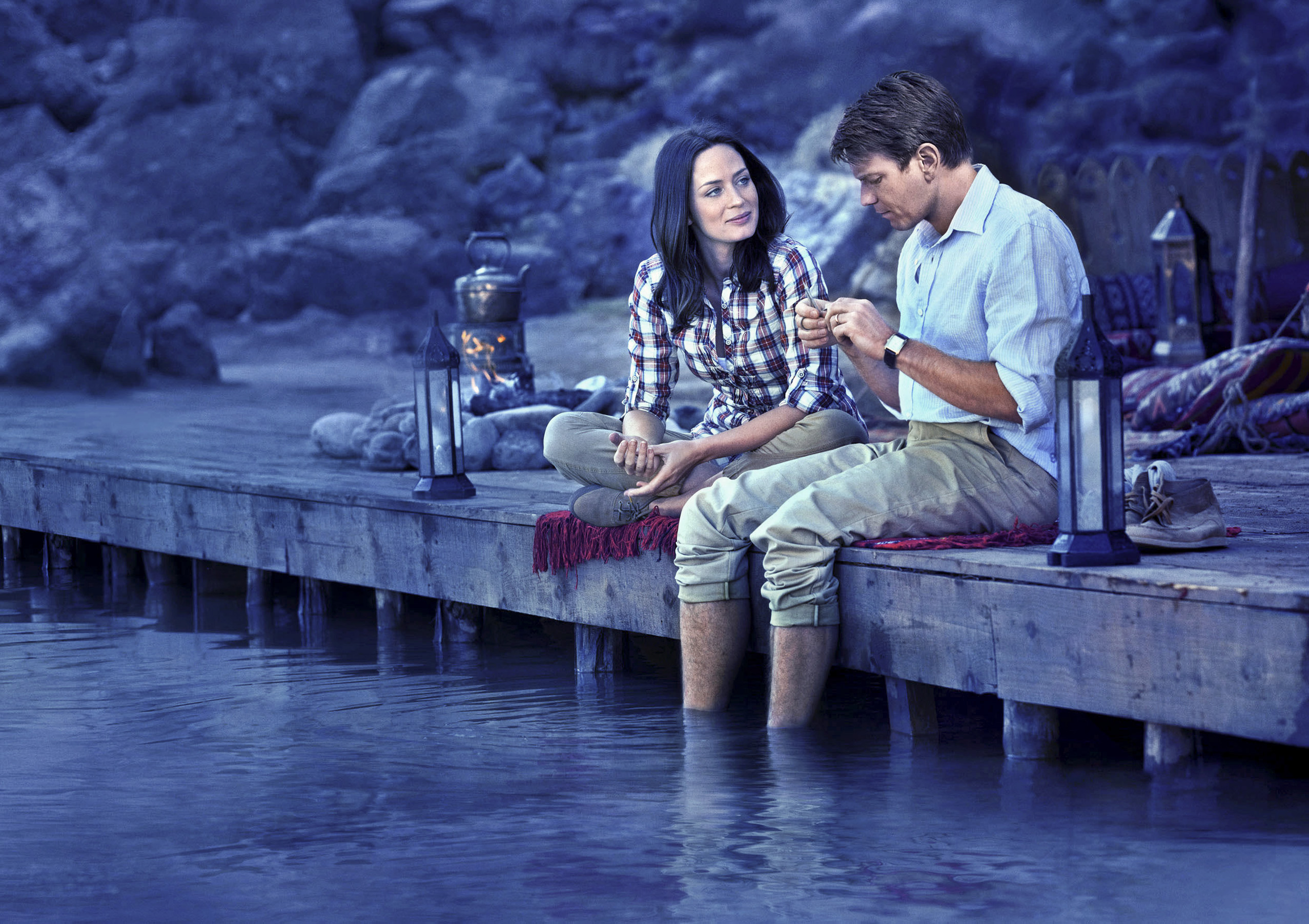

You might not be familiar with the name Lasse Hallström, but if you were once a softie like me who used to fall for eye-candy cinematography, a twist of love and life philosophy and breezy plots, you might have dwelled happily on such films as “What’s Eating Gilbert Grape” (1993), “The Cider House Rules” (1999), “Casanova” (2005) or “Dear John” (2010), all crowd-pleasers directed by him. And just like ABBA, the Swedish pop group with whom he started his career as a filmmaker, Hallström knows a thing or two around the big shots as well: his signature work “Chocolat” (2000) made quite some noise at the Academy Awards, including a second Best Picture nomination cranked by the Harvey Weinstein strategy machine. With “Salmon Fishing in the Yemen,” Hallström returns with yet another confection, but this time its sugarcoat melts too readily for me to give the film a pass.
The film starts off in typically British character humor: Ewan McGregor stars as Dr. Alfred Jones, whose Asperger’s syndrome as portrayed in the film only highlights his hilarious flair of seriousness not unlike the adoring naivety that he exuded in “I Love You Phillip Morris.” Working as a fisheries expert for the British government, Fred scoffs at the proposal to introduce salmon fishing in Yemen by a wealthy sheikh, represented by Harriet (Emily Blunt). Yet under the pressure from Prime Minister’s press secretary Patricia (Kristin Scott Thomas), who scrambles to concoct a feel-good story to distract the public from the toxic reality in Afghanistan, Fred changes his attitude when his seemingly farcical idea takes flight and transforms into an exciting opportunity that could reshape his career and his love life. Alive with tender cuteness and whip-cream smarts, Blunt’s character is pleasant but about as memorable as the million other female leads in romantic comedies that Reese Witherspoons and Jennifer Anistons have embodied in the past decade. The dynamics between Harriet and the fire-spitting persona Patricia follow a “white-collar woman” archetype similar to the one in Blunt’s breakout, “The Devil Wears Prada.” Thomas is no Meryl Streep, but the sparks in “Salmon Fishing in the Yemen” would not fly nearly as high even if she was, for the jokes in the film cut only skin deep and carefully avoid any potential insult. In contrast with other comedies currently in theater, it does not drive you nuts like the emblematic slapstick “The Three Stooges” or gross you out like “American Reunion.” It is sweet. Just sweet.
Yet with every sugar rush comes a crash afterwards. Unfortunately for “Salmon Fishing in the Yemen,” that moment arrives way too soon. More precisely, the film begins to drift apart when it attempts to become “serious” with Harriet’s three-week boyfriend (the miraculous prince-charming who manages to define a significant relationship in three weeks), missing in action in Afghanistan. In part, Simon Beaufoy’s adapted screenplay from Paul Torday’s eponymous novel is to blame: the mind behind “Slumdog Millionaire” and “127 Hours” has a penchant for the grandiose. In those films, the themes that confront contemporary society and identities have justified his tendency and resulted in fruitful attempts. Yet Beaufoy’s ambition to magnify and address absolutely everything agrees with Torday’s dainty, lightweight sarcasm, bombarding the audience in what soon becomes a parade of gimmicks, as if Beaufoy was hastily going over a Hollywood to-do list: terrorism, politics and diplomacy, publicity stunt, action thriller, romance, love triangle, marriage, middle-age crisis, science and faith, humankind against nature and social media. This appetite for overachievement bears so much weight on the nifty original that it crashes, leaving the audience as disoriented as the farmed salmon that first enter the Yemen waters in the film.
The main problem of “Salmon Fishing in the Yemen” is that it tries too hard to be deeper than what it actually is. It could have taken more advantage of the clean, fast-moving dialogues and light atmosphere, or leaned toward a more sophisticated exploration of facts and faith or even blasted loudly the sentiments around fishing, complete with marvelous scenery and ethereal music score. Yet in an overly appropriate attempt to please, it instead indulges in a perfunctory tour of clichés that practically look for trouble. Simplistic portrayal of Middle East? Check. Stiff monologues or emotional outbursts without context? Check. Random insertion of “live footage”? Check. Addressing these clichés with hints of irony will not rescue the film from a tasteless stream of events, but at least we would not have to put all our hopes into the climax: will the salmon find its way upstream? Will Fred and Harriet get together? The very blandness of these questions might indicate how the film loses its luster. For me, Thomas’ character delivered the one-liner that inadvertently serves as a metaphor of the film’s failure. Surprised to learn that UK boasts of two million fishing aficionados, she gasps, “So there are two million of them waving their rods around?” Similar to the image in her mind, the film casts its fly all over the place, yet the singular virtue is lost: patience. Perhaps that is why this time around, no bait can save the day.